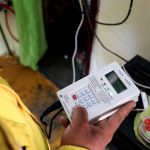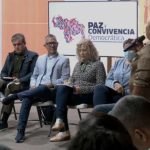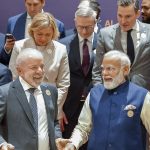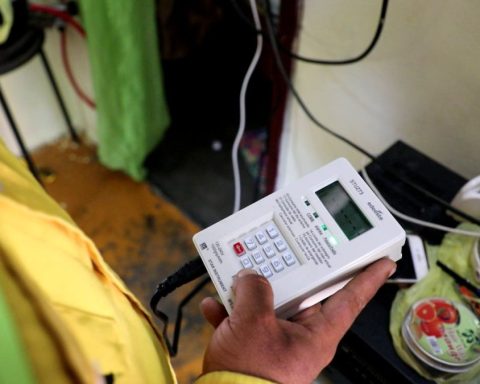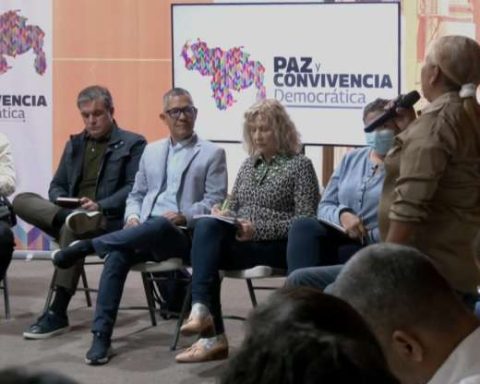On April 7, 1948, countries around the world came together to found the World Health Organization (WHO) to promote health, keep the planet safe and serve the most vulnerable. The date also made World Health Day official, considered an opportunity to remember public health successes over the last decades and motivate actions to face the challenges of the sector in the present and in the future.
To celebrate the date, the Brazil Agency heard the president of the National Health Council (CNS), Fernando Pigatto. Known as “social control in health”, the entity works as a collegiate, deliberative and permanent instance of the Unified Health System (SUS) and its mission is to inspect, monitor and monitor public health policies, taking the demands of the population to the public authorities.
In the conversation, Pigatto spoke about the resumption of national health conferences, considered one of the most important spaces for dialogue between government and society for the construction of policies within the public network. The CNS president also commented on new guidelines for combating and treating tuberculosis in Brazil and on the construction of protocols for the Covid-19 Victim Care Network.
Check out key excerpts from the interview:
Brazil Agency – The 17th National Health Conference takes place from the 2nd to the 5th of July in Brasilia with the theme Guaranteeing Rights and Defending the SUS, Life and Democracy – Tomorrow will be another day. What is the importance of resuming this type of space for dialogue?
Fernando Pigatto – We held the 16th National Health Conference in 2019 in an environment of many setbacks. For this new conference, when we made the call, in October 2021, we were at a moment in the country that followed – we had the sad episode of January 8, with the withdrawal of rights, threats to the SUS, democracy and life. We started building this conference back in 2021, but now we are in a new environment, with municipal conferences taking place, state conferences in April and May, free conferences throughout Brazil, in a climate of reconstruction.
We still need to continue building, but we have already taken several important steps and this resumption of strengthening spaces for participation and social control are fundamental for Brazilian democracy, for SUS, to preserve lives and recover rights withdrawn in this last period.
Brazil Agency – What are the so-called free conferences that the CNS started to adopt from this year onwards? What is the impact of this format for social movements and specific topics such as HIV/AIDS and the LGBTQIA+ population?
Fernando Pigatto – We innovate by opening 600 vacancies for people delegated from free conferences. It is a space where we strengthen participatory democracy, where we make thematic debates and specific issues, which are often not agreed upon, have a different look. Obviously, we obey parity: there are 300 vacancies for delegates for the male and female users segment [do SUS], 150 for health workers and 150 for the manager and provider segment. We are having several positive experiences. Until the 10th of May, all entities, movements, collectives, groups and institutions can inform about the holding of the free conference. The deadline for holding the free conference is May 30th. The free conference is an innovation that is here to stay and, more and more, is being perfected so that Brazilian social control can be strengthened.
Brazil Agency – You were present at the relaunch ceremony of the Mais Médicos program and celebrated what you called social control once again included in the official health planning agendas. What does that mean?
Fernando Pigatto – We are rescuing participation, social control, collegiate bodies, councils, conferences, with a very strong force. We will have the National Health Plan being prepared from the months of July and August with the holding of the 17th National Health Conference. We will be pointing out, within the guidelines and proposals of the conference, what has to be in the National Health Plan. This means the budget dispute for social control, by entities and movements that participate in conferences and councils. When there is nothing foreseen in the budget or when the budget decreases, we are now going to fight for more resources, more budget for the Unified Health System, as well as all the other councils and conferences that will be held in the next period should also influence our direction of our country.
Brazil Agency – The CNS recently approved new guidelines for the treatment of tuberculosis in the SUS. One of the proposals is the creation of an interministerial committee. Will civil society participate?
Fernando Pigatto – We believe that this inter-ministerial working group should, yes, have the presence and, obviously, the permanent dialogue with the Brazilian social control and the National Health Council itself. We do not indicate to government entities to do for us, to dialogue or debate for us, to define, to decide for us. The decision, the construction, the debate are up to us, with our participation.
Brazil Agency – The CNS will join the so-called Executive Group of the Health Economic-Industrial Complex, responsible for monitoring actions to strengthen the Health Economic-Industrial Complex. How will this work?
Fernando Pigatto – We learned, in the pandemic, how terrible it is that we do not have guaranteed sovereignty. Terms to bring gloves, masks. We have to run after various materials, various instruments that we could be producing in the country. As well as the knowledge that we produce and that has been attacked so much in the last period.
Science was attacked. So, we need to rescue this. This experience of being able to participate in this whole debate, the construction, the resumption and the progress towards an industrial economic complex that guarantees national sovereignty, for us, is a reason for great pride. We helped build that policy. It’s not something that’s being laid out for us like we don’t know anything. No. We help build. We held seminars, lives, a series of debates.
Brazil Agency – How does CNS see the decision of the Ministry of Education to allow the opening of new medical courses in regions where there is a lack of doctors?
Fernando Pigatto – We will have a meeting next week, we will take it to our intersectoral commissions and, in due time, after having an internal debate, we will express our opinion on this issue. For us, the fundamental thing is that the population has quality care. That health is not treated only as the absence of disease, but that there is prevention. That health professionals understand life, people’s health as the integrality that we are, with the right to housing, sanitation, culture, education, transportation, a full life. As long as they meet these principles, which are the principles of universality, integrality, equity, which are the principles of the SUS and are in line with what we produce, we will support them. Just like when there is something that is done, put into practice by the government and that is not in accordance with what we defend and with what we have formed an opinion, we will criticize it.
Brazil Agency – In a recent meeting with the Federal Public Ministry, the CNS asked for urgency in the construction of protocols for the Care Network for Victims of Covid-19. What are the council’s recommendations to the Ministry of Health in this regard?
Fernando Pigatto – This is a priority situation for us. Because we had a government and a Ministry of Health that acted in favor of the virus, against the people and we arrived at what we arrived at. In addition to the 700 thousand lives taken from us, many sequels, orphaned people and the long covid. These initiatives will not be defined solely and exclusively by the Ministry of Health team. They are being debated in a workshop of the Technical Chamber for Monitoring Covid With the presence of the Ministry of Health, Anvisa [Agência Nacional de Vigilância Sanitária]from PAHO [Organização Pan-americana da Saúde]from Fiocruz [Fundação Oswaldo Cruz]from Conass [Conselho Nacional de Secretários de Saúde]from Conasems [Conselho Nacional de Secretarias Municipais de Saúde].
Brazil Agency – What do you consider the main challenges for the reconstruction of the SUS post-Bolsonaro government?
Fernando Pigatto – I always say that rebuilding is much more difficult than destroying. Bringing a house down is not easy. But building or rebuilding a house that has been destroyed is very difficult. We, as we have the commitment and we follow, create proposals, debate in the transition group, we had several meetings with ministers, with national secretariats, with teams from the Ministry of Health and we are also having dialogue with other ministries.
What we want and are sure will happen is the union of efforts, at this moment in history, so that we make all the setbacks that happened and that there are many, in addition to rebuilding what was destroyed, we move forward to build new paths, build new alternatives. We strongly believe, as we are from social control, as we are from participation, that participatory democracy needs to be radicalized and that we will have great challenges.







